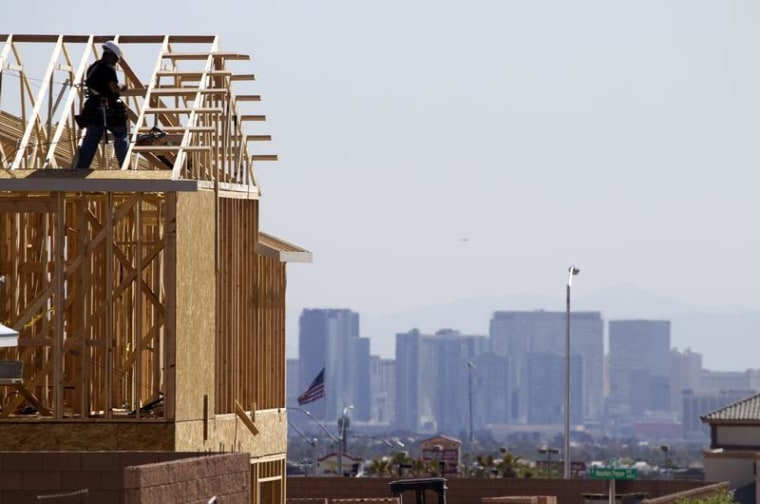WASHINGTON - Housing starts and permits for future home construction unexpectedly fell in June, but the decline in activity was likely to be short-lived against the backdrop of bullish sentiment among home builders.
The Commerce Department said on Wednesday that housing starts dropped 9.9 percent to a seasonally adjusted annual rate of 836,000 units. That was the lowest level since August last year.
Economists, who had expected groundbreaking to rise to a 959,000-unit rate, shrugged off the decline and said wet weather in many parts of the country had dampened activity. They noted that much of the drop was in the volatile multifamily segment.
"It looks like it's weather-related," said Sam Bullard, a senior economist at Wells Fargo Securities in Charlotte, N.C. "On the surface it doesn't look good, but we are confident that starts activity is still going to climb higher in the months to come."
Permits to build homes fell 7.5 percent last month to a 911,000-unit pace. Economist had expected permits to rise to a 1-million unit pace.
Though it was the second straight month of declines in permits, they remained ahead of starts. Economists said this, together with upbeat homebuilder confidence, suggested groundbreaking activity will bounce back in July and through the remainder of this year.
Sentiment among single-family home builders hit a 7-1/2 year high in July, a report showed on Monday, amid optimism over current and future home sales.
Mortgage rates still low
There was little to suggest that a recent spike in mortgage rates was restraining home building activity, economists said, pointing to the improving builder confidence.
"New home supply and housing completions remain low, home prices are rising and, despite the recent rise, mortgage rates remain low," said John Ryding, chief economist at RDQ Economics in New York. "To us, this all points to housing activity adding to growth in the second half of the year."
Housing's recovery is being aided by still-low mortgage rates engineered by the Federal Reserve's accommodative monetary policy and steady employment gains.
Mortgage rates increased in recent weeks after the Fed expressed its desire to start cutting back on its bond purchases later this year. The monthly $85 billion in bond purchases have been holding down interest rates.
Fed Chairman Ben Bernanke said on Wednesday the central bank still expected to start scaling back its massive asset purchase program later this year, but left open the option of changing that plan in either direction if the economic outlook shifted.
The U.S. stock market rose as Bernanke's comments led markets to believe the central bank's plans to pull its monetary stimulus were not set in stone. The U.S. dollar gained ground while Treasury securities prices slipped.
Bernanke offered an upbeat assessment of the housing market's prospects.
"Housing activity and prices seem likely to continue to recover, notwithstanding the recent increases in mortgage rates, but it will be important to monitor developments in this sector carefully," Bernanke told lawmakers.
Last month, groundbreaking for single-family homes, the largest segment of the market, slipped 0.8 percent to its lowest level since last November 2012. Starts for multi-family homes declined 26.2 percent to a 245,000-unit rate.
Starts were down in all four regions in June, with big declines in the Northeast, South and the Midwest.
Weak groundbreaking suggested a smaller boost to both second and third quarter gross domestic product from residential construction. Second-quarter GDP estimates are ranging between 0.5 percent and 1 percent.
The economy grew at a 1.8 percent annual pace in the first three months of the year.
Permits for multi-family homes fell 21.4 percent last month. But permits for single-family homes rose 0.6 percent to a their highest since May 2008.
More business news:
- McDonald's finance guide 'insulting' to low-wage workers
- Congress debates food stamp cuts as moms fret about feeding kids
